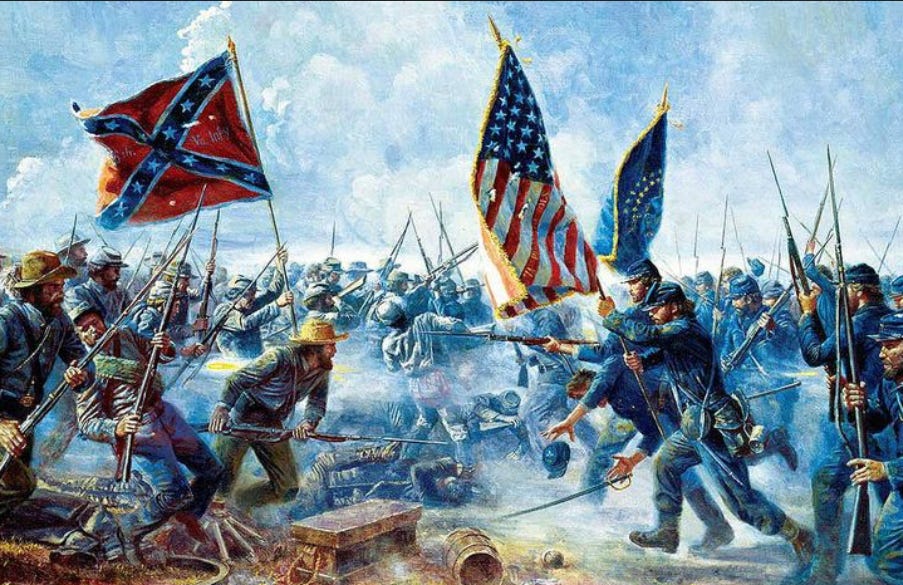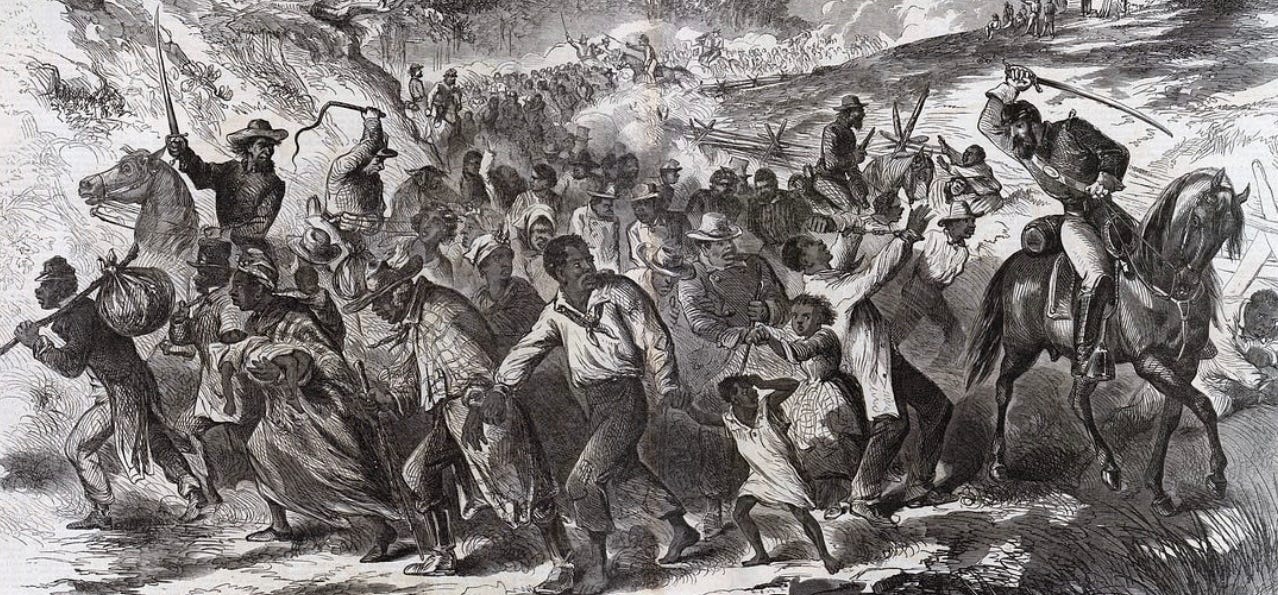In his famous Gettysburg Address, delivered at the dedication of a cemetery for the fallen Union soldiers of the 1863 Battle of Gettysburg, President Abraham Lincoln eloquently said, “The world will little note, nor long remember what we say here, but it can never forget what they did here.”
We must not forget. The men who fought and died at Gettysburg—a battle that started on this day, July 1—saved the Union and helped guarantee the end of slavery, and to them we owe an eternal debt of gratitude. But while a detailed examination of the battle itself is a very valuable study, I wish to focus more on the larger significance and backdrop of this historic Civil War battle. But first, a few quick facts.
“The Battle of Gettysburg, fought from July 1 to July 3, 1863, is considered the most important engagement of the American Civil War. After a great victory over Union forces at Chancellorsville, General Robert E. Lee marched his Army of Northern Virginia into Pennsylvania in late June 1863. On July 1, the advancing Confederates clashed with the Union’s Army of the Potomac, commanded by General George G. Meade, at the crossroads town of Gettysburg. The next day saw even heavier fighting, as the Confederates attacked the Federals on both left and right. On July 3, Lee ordered an attack by fewer than 15,000 troops on the enemy’s center at Cemetery Ridge. The assault, known as “Pickett’s Charge,” managed to pierce the Union lines but eventually failed at the cost of thousands of rebel casualties. Lee was forced to withdraw his battered army toward Virginia on July 4. The Union had won in a major turning point, stopping Lee’s invasion of the North. It inspired Lincoln’s ‘Gettysburg Address,’ which became one of the most famous speeches of all time.”
One of the Democrat ways of rewriting history is to talk only about the brilliance and successes of their Confederate generals. While Union Gen. Meade was not a very good general (it was not until U.S. Grant took charge of the Union armies that there was a general as great as and greater than the talented Confederate leaders), he had officers who fought very heroically and well at Gettysburg, with the repulse of Pickett’s (failed) Charge showing that clearly.
It is key to note that this victory came at a time when even those who had denied the charge at first understood that the war was about slavery. The immortal Emancipation Proclamation freeing all slaves in Confederate states was issued Jan. 1, 1863. “Everyone seemed to feel a new sort of exhilarating life,” said John Hay, Abraham Lincoln’s personal secretary, after Lincoln issued the Proclamation. “The President’s proclamation had freed them as well as the slaves.”
Just before that, in Dec. 1862, Confederate President Jefferson Davis issued a proclamation of his own, first introducing the official Confederate policy of treating white officers of black Union troops and their black soldiers as slaves instead of Prisoners-of-war (POWs). This was followed in May 1863 by The Retaliatory Act of the Confederate Congress, which said it aimed to protect the “institution of African slavery.” Read the words of this infamous act for yourself (emphasis mine):
“[A]ll captives taken by the confederate forces ought to be dealt with and disposed of by the confederate government. . .That every white person, being a commissioned officer, or acting as such, who, during the present war, shall command negroes or mulattoes in arms against the confederate States, or who shall arm, train, organize, or prepare negroes or mulattoes for military service against the confederate States, or who shall voluntarily aid negroes or mulattoes in any military enterprise, attack, or conflict in such service, shall be deemed as inciting servile insurrection, and shall, if captured, be put to death, or be otherwise punished at the discretion of the court. . .
All negroes and mulattoes who shall be engaged in war or taken in arms against the confederate States, or shall give aid or comfort to the enemies of the Confederate States, shall, when captured in the Confederate States, be delivered to the authorities of the State or States in which they shall be captured, to be dealt with according to the present or future laws of such State or States [laws which included re-enslavement and/or execution].”
Later, when Union commander U.S. Grant insisted that black Union troops be included in prisoner exchanges, Confederate commander Robert E. Lee retorted that “property” would not be included, causing Grant to stop prisoner exchanges altogether. In practice, the Confederates rounded up every black man, woman, and child they could get their hands on, particularly devastating parts of Pennsylvania.
Gettysburg was fought in the midst of this ideological battle over slavery. Indeed, the Confederate army had just devastated the black communities in parts of Pennsylvania leading up to the battle. Gettysburg, which had had a thriving free black community, was decimated. The white citizens of Greencastle, PA, rose up and saved a number of the Confederates’ black captives, but an unknown number of others were enslaved and many disappeared from history, never to be traced again. That is the hideous backdrop of the bloody Battle of Gettysburg.
So, when the Union soldiers won their victory and damaged the Confederate forces of Gen. Robert E. Lee, they won a victory not just for the Union army but for justice and against slavery. The very Confederates who had run rampant rounding up defenseless black women and children in Pennsylvania came to Gettysburg and lost, badly.
There was still a long haul ahead of the Union to win the Civil War, and still many decades before black Americans would win full civil rights, as had originally been intended for them when the Constitution was first ratified. But the Union heroes of Gettysburg had taken a major step toward ending the treacherous Confederacy and bringing justice to thousands of black Americans.
And so we honor them today, those white and black men who spilled their blood to save the Union and end slavery, and we take up their banner and move forward. For the Democrats lost the Civil War, but they have nearly won the peace; they are betraying our country now, but not by fighting on the battlefield or by chasing down slaves but from the very seats of government power. As Abraham Lincoln said:
“It is for us the living, rather, to be dedicated here to the unfinished work which they who fought here have thus far so nobly advanced. It is rather for us to be here dedicated to the great task remaining before us—that from these honored dead we take increased devotion to that cause for which they gave the last full measure of devotion—that we here highly resolve that these dead shall not have died in vain—that this nation, under God, shall have a new birth of freedom—and that government of the people, by the people, for the people, shall not perish from the earth.”





